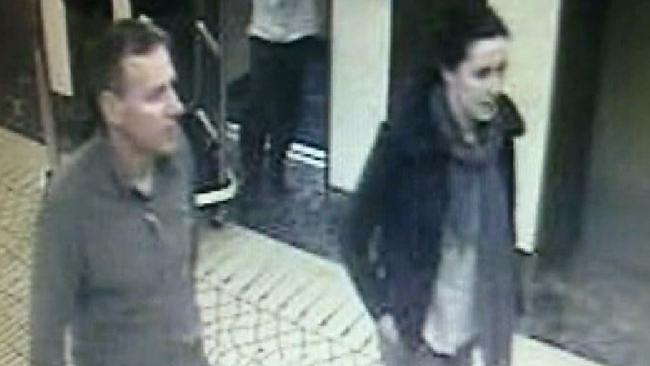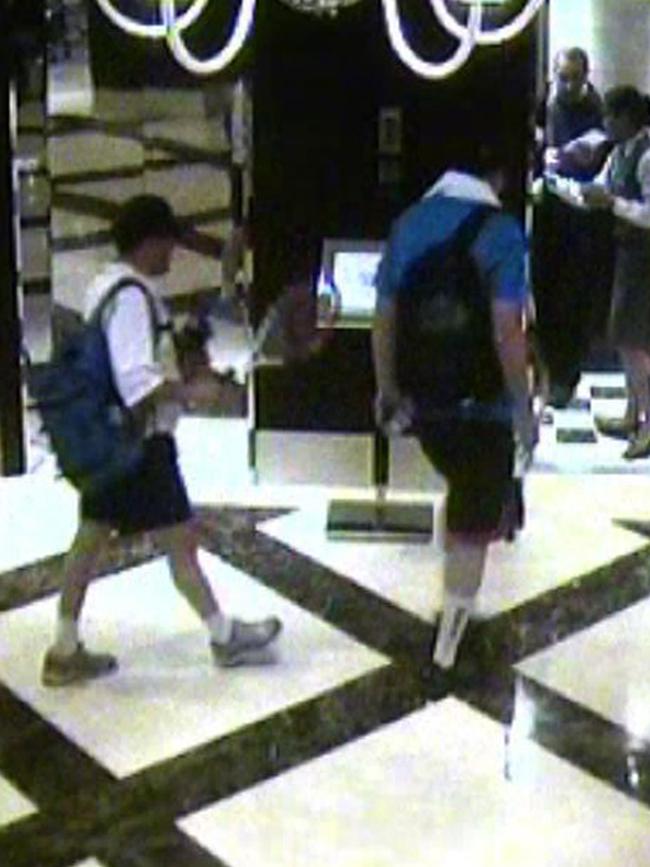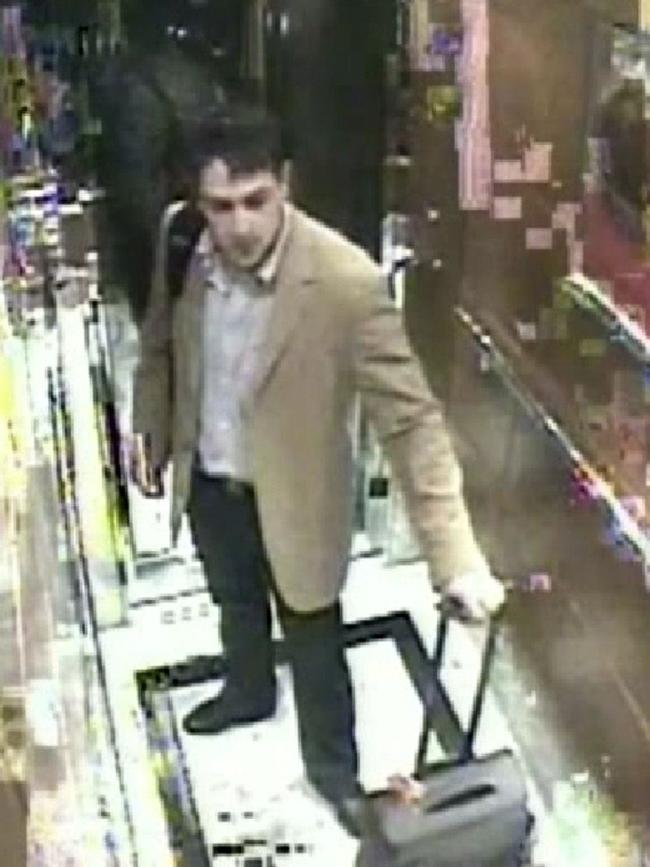The modern assassin is not a sharp shooter – it’s a device
The exploding pagers and walkie talkies in Lebanon are a sign of the bloody times – killing and maiming your enemies is no longer done face-to-face.

You can now listen to The Australian's articles. Give us your feedback.
A former director of Mossad, Israel’s national intelligence agency, once said to me: “You Australians, you have the best neighbour. The sea.”
Turns out it is a very good thing to be girt by sea. If you have enemies, it makes it harder for them to approach you. Australia and Israel share a few enemies, as do most liberal democracies, but Israel is encircled by them. And if God did give the Jews the Promised Land, he was frugal. The country is just 419km long. From Canberra, that wouldn’t get you very far past Newcastle. At its narrowest, Israel chokes to 15km – the distance between Sydney’s GPO and its Olympic Park, which a professional runner could do in about 40 minutes.
So when that little nation’s Arab enemies gang up for an attack on the Middle East’s only democracy – as they have in 1948, 1967 and 1973 (not including any number of intifadas and insurgencies) – it’s hardly a logistic challenge.
Israel is a child of hope; its enemies are often children of hate. And keeping them at bay is a full-time job. Indeed, it is has been a full-time job this past year for 169,000 defence force personnel on active service and many of Israel’s 465,000 fully trained civilians.
Just as importantly, it is a full-time job for the 7000 people who are employed by Mossad, whose annual budget is more than $4bn. Our equivalent, the Australian Secret Intelligence Service, has an unknown number of staff (just one of the secrets it keeps) but a budget of $605m – not that different to the budget of the Australian Security Intelligence Organisation, which has about 1875 people.
Intelligence is not the game it was when the KGB, CIA and MI6 operated in ways not that far removed from the techniques of the world’s most famous spy, James Bond. Bond dispatched Jack Spang, his nemesis in Diamonds Are Forever, by shooting down his helicopter. He strangled his rival Auric Goldfinger, and in Moonraker shot Hugo Drax with a golden dart.
When scenes for Moonraker were being filmed in Buckinghamshire, just 30km away in London Georgie Markov, the Bulgarian dissident who defected in 1969, was working for the BBC and Radio Free Europe. After crossing Waterloo Bridge on September 7, 1978, he was waiting at a bus stop when he felt a sharp sting in the back of his leg. He turned to see a fellow behind him picking up an umbrella. The umbrella had fired a pellet measuring 1.7mm into the back of Markov’s thigh. He died four days later. Oleg Kalugin, a US-based KGB defector, said Soviets had arranged the murder using the poison ricin.
Last year, two months after Yevgeny Prigozhin and his Wagner troops mounted their rebellion against Vladimir Putin, it seems he was targeted for assassination. A bomb was set off in his private plane, killing all aboard. No one knows who might have directed that, but US President Joe Biden said at the time: “There’s not much that happens in Russia that Putin’s not behind.”
Ùيديو متداول – Ù„Øظة انÙجار جهاز "Pager" مع Ø£Øد الأشخاص داخل Ù…Øال "ÙŠØيى" – #طريق_المطار.#لبنان #الضاØية_الجنوبية #Øزب_الله #ليبانوس pic.twitter.com/nu4DPcfCF3
— Lebanos (@lebanosnews) September 17, 2024
If it was the Russian state, it was unusually crude. The Russians have come a long way since Stalin ordered the assassination of his critic Leon Trotsky. After some ham-fisted attempts to kill him in Mexico City, Trotsky wrote on June 8, 1940 that Stalin wanted him dead and would try again – 74 days later he was killed with an ice axe.
The US famously tried and failed to assassinate Cuban dictator Fidel Castro coming up with common strategies, including several attempts to shoot him or blow him up. And there were odd plans such as having staff put CIA-made poison pills in his food, having him wear a toxic wetsuit and even tempting the enthusiastic diver with a booby-trapped conch on the seabed. When Castro discovered there had been a plan to kill him with a lethally poisoned cigar, he stopped smoking.
More recently, the US has killed its enemies using drones, including Islamic Revolutionary Guard Corps leader Qasem Soleimani at Baghdad Airport on January 3, 2020, and Atiyah Abd al-Rahman, Osama bin Laden’s chief of staff, in Pakistan in 2011.
The exploding pagers that went off across Lebanon on Tuesday killing a dozen people and injuring thousands are the latest advance in eliminating an enemy. Israel has not taken responsibility for the inventive attacks, which followed a warning by Hezbollah organisers that members not use smart phones because they might be subject to cyber attacks across the network. Presumably someone was aware of that change in communications and looked out for an urgent large order of pagers. You can guess the rest.
Israel has sometimes had to reach beyond its border to liquidate enemies, most famously when it vowed to kill the Palestinian Liberation Organisation assassins whose attack led to the deaths of nine of its athletes at the 1972 Munich Olympics. Weeks later, Israel’s prime minister Golda Meir ticked off the covert plan. It wasn’t vengeance. With Israel, it seldom is – it was meant to deter further such attacks.
The assassinations started in 1972 with a bomb planted in a PLO suspect’s telephone in Paris. It is not clear how many PLO terrorists were seen off. Most were shot, but the circumstances varied. One attack in Lebanon was led by future prime minister Ehud Barak. I was once invited to his house – and was relieved when he came to the door dressed as a man. The last time he dressed as a woman he was in a darker mood and on his way to a residence in Beirut with a crew to kill three of the Munich massacre organisers. They piloted a small Zodiac about 18kms from shore, silently rowing the final few hundred metres. It went to plan until a guard asleep in his car jumped out with a pistol. They shot him, but a bullet entered the vehicle setting of its alarm. Amid the noise and confusion, the Israelis made their way back to the dinghies and started their motors.
Things were more sophisticated when, on January 19, 2010, Israeli agents were sent to Dubai to deal with Mahmoud al-Mabhouh, who had been boasting about murdering Israeli soldiers and was suspected of smuggling rockets into Gaza. Several teams posing as tourists and tennis players – 27 men and a women – flew from different cities all arriving at the United Arab Emirates capital throughout the day. That evening, four of them entered Mabhouh’s room at the Al-Bustan Rotana Hotel using an electronic device that decoded his guest pass.
They hid there until he returned and either injected him with a paralysing sedative or an electric shock, then suffocated him with a pillow. It was all over in 10 minutes. Nothing in the room was disturbed. The killers closed the door behind them – from the inside – and left the country with their plotters, spotters and decoys.
The Israelis had used forged Australian and Irish passports and our foreign minister, Stephen Smith, thundered in parliament that these were not the actions of a friend. The government was so angry that a screening in Parliament House of an Israeli film called Noodle was cancelled.


Mossad outdid itself with the assassination of top Iranian nuclear scientist Mohsen Fakhrizadeh in November 2020. He was believed by the West to be the “father” of Iran’s nuclear program that many believe it hopes will fulfil its promise to wipe Israel from the map.
Israeli agents working inside and outside Iran set up a computerised machine gun loaded on to the back of what appeared to be an abandoned vehicle and stationed it on the roadside near his holiday home. It was accompanied by face-recognition technology that would ensure that Fakhrizadeh, and not his wife beside him, would be killed. Their guards were in a car at the rear.
With his identity confirmed, his assassin, thousands of kilometres away, possibly Mossad’s Tel Aviv HQ, cocked the weapon and fired. Only Fakhrizadeh was shot.
A clue to the efficiency of Mossad is that in 2017 it launched a company called Libertad Ventures, an investment fund to invest in innovative, breakthrough technologies.
Perhaps earlier this year a young university student approached Libertad with an idea for paging devices.






To join the conversation, please log in. Don't have an account? Register
Join the conversation, you are commenting as Logout